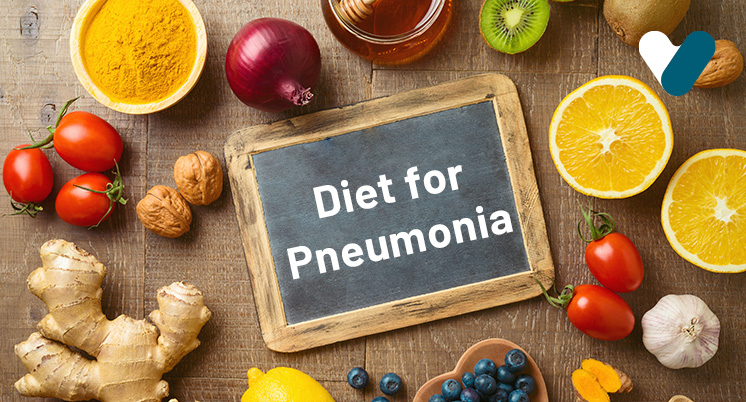An Overview of Thyroid
The thyroid is a gland located in the front of the neck. The butterfly-shaped gland generates hormones that regulate blood pressure, body temperature, heart rate, metabolism, bone density, hormonal balance, hair and skin health and the response to other hormones in the body. The two primary hormones produced by the thyroid gland are Triiodothyronine (T3) and thyroxine (T4). Additionally, the gland generates calcitonin, which assists bone cells in calcium processing and bone deposition.Thyroid disorders
Your thyroid gland develops, regulates, and generates hormones that are essential to several physiological functions. When the thyroid over-produces or under-produces the hormones, the condition leads to a thyroid disorder. There is no method to treat thyroid illness or decrease its progression. If you are one of the 40 million individuals in India with the condition, you can control the illness. The most effective way is to get a diagnosis, prevent it from becoming a major issue, and reduce its impact on your health and life. The following are common types of thyroid diseases that require treatment by a physician:• Hyperthyroidism: Hyperthyroidism can result in Graves' disease, which is characterised by several symptoms, such as perspiration, arrhythmia (irregular heartbeat), weight loss, bulging eyes, and anxiousness. • Hypothyroidism: Hypothyroidism can manifest as fatigue, weight gain, depression, improper bone formation, and stunted growth. The autoimmune generation of antibodies that assault the thyroid gland is the most prevalent cause. • Hashimoto's Endocrine Thyroiditis: The autoimmune disease Hashimoto's thyroiditis is an inflammation of the thyroid gland. It can result in a goitre (neck swelling owing to an enlarged thyroid gland) and other symptoms. How a nutritious diet affects your thyroid
The right foods are crucial for balancing and regulating thyroid function naturally and can offer several advantages. Studies have established that a nutritious and wholesome diet can reduce the risk of developing hypothyroidism. Individuals on a healthy diet are less likely to experience hyperthyroidism. Incorporate whole foods like vegetables, legumes & grains, berries, nuts, and seeds, which are favourable for thyroid health. Optimise your food choices It is essential to know that your food may lack certain nutrients essential for thyroid health. If you have a thyroid condition, it is crucial to highlight that food and lifestyle alone may not be sufficient to control certain kinds of thyroid illness. Also, avoiding medication might put you at risk for cardiovascular disease and osteoporosis. Foods for thyroid health Individuals with the thyroid issue are more susceptible to have nutritional deficits than the general population. Various nutrients in whole foods have high levels of antioxidant and anti-inflammatory compounds, which are necessary for the health of the thyroid. • Iodine: Iodine deficiency is a frequent cause of hypothyroidism. Iodine is required to produce thyroid hormones, and its shortage can result in hypothyroidism. Note: If you have hypothyroidism, you should not take iodine supplements unless your doctor recommends them. Excessive iodine consumption is detrimental to the thyroid and can potentially induce hyperthyroidism. • Vitamin D: Hypothyroidism increases susceptibility to vitamin D and D3 insufficiency. Low vitamin D levels may affect thyroid function and worsen hypothyroid symptoms. Vitamin D is made in the body, unlike other vitamins. It is a fat-soluble vitamin and as well as a hormone that our body makes. It helps the body ingest and absorb calcium and phosphorus, both essential for bone health. Walk regularly in the open for an hour in the morning before the sun gets too strong so that your skin can absorb the sunlight to produce vitamin D. The vitamin reduces cancer-cell development, controls infections and inflammation, and regulates thyroid levels. Fortunately, certain packaged foods, such as soy milk, orange juice, and cereals, which do not contain vitamin D naturally, now come fortified with Vitamin D. • Vitamin B12: Persons with hypothyroidism have low amounts of B12. If your B12 or B-complex levels are inadequate or insufficient, your doctor may recommend a supplement. Essential minerals • Magnesium: Deficiency in magnesium is associated with thyroid dysfunction and increases the likelihood of developing hypothyroidism. To maintain a healthy magnesium level, consume an abundance of greens, nuts, and seeds such as pumpkin seeds, cashews, and almonds. • Iron: Iron Deficiency in iron can impair thyroid function. There is a link between hypothyroidism and low iron levels. Iron deficiency is frequent among hypothyroid females. Eat more lentils, pumpkin seeds, sunflower seeds, dark greens, and blackstrap molasses to maintain iron levels. Iron deficiency is frequent among hypothyroid females. Include an abundance of dark green vegetables and dried fruits in your diet to maintain iron levels. • Zinc: The production of thyroid hormones and thyroid function require zinc in the body. Zinc deficiency can have profound effects on thyroid function and several other aspects of health. Therefore, it is essential to ingest adequate levels of this mineral. • Selenium: The mineral is necessary to produce thyroid hormones and protects the thyroid from oxidative stress-induced damage. Consume Brazil nuts and legumes to improve your selenium levels and maintain a healthy thyroid. Amino Acids Tyrosine: Your thyroid gland produces thyroid hormones via an enzyme called thyroid peroxidase. The enzyme combines the amino acid tyrosine, the mineral halide iodine, and hydrogen peroxide to produce thyroid hormones. Like iodine, tyrosine also plays a vital role in thyroid hormone production. Tyrosine is found in soy products, peanuts, almonds, avocados, bananas, lima beans, pumpkin seeds, sesame seeds and wild rice. Change in lifestyle Taking care of your entire body is the best approach to promote healthy thyroid levels, which are crucial for metabolism, hormonal balance, weight control, stable body temperature, and many other functions. Replace the junk food in your diet with a variety of wholesome, whole foods, and do not miss your yearly physical. Detecting concerns early can avoid the development of significant disorders and safeguard your thyroid from future damage.
Thyroid foods to avoid
People with hypothyroidism should limit the following foods to help balance overall health as certain foods that can trigger thyroid issues:Gluten: Gluten is a cluster of proteins present in wheat, barley, rye, and triticale. Studies indicate that individuals with Hashimoto's disease can benefit from a gluten-free plan. Gluten-free foods can benefit those with Hashimoto's disease. Consumption of gluten can trigger minor intestinal irritation for those with Hashimoto's Endocrine Thyroiditis. Processed foods: It is essential for hypothyroid patients to avoid ultra-processed meals, foods, and beverages rich in added sugar, and fried foods. Besides contributing to oxidative stress, a diet heavy in processed foods can lead to obesity. Thus, it is crucial to reduce your consumption of such foods, which will help you maintain a healthy body weight. Goitrogens: Goitrogens are naturally chemicals found in cruciferous vegetables and soya-based products that can impair the thyroid gland's function, if eaten in large quantities. Soy and pearl millet are two more goitrogenic foods. Goitrogens are named after the term “goitre”, which refers to an enlarged thyroid gland. If the thyroid gland is unable to synthesise sufficient amounts of thyroid hormone, it may expand to compensate. Goitrogens impede the thyroid's ability to produce hormone. Most people, including those with hypothyroidism, can consume cruciferous veggies like cabbage, broccoli, and kale in modest amounts without compromising their thyroid health. In addition, cooking decreases the goitrogenic activity of goitrogen-containing foods, making them safer for those with hypothyroidism. However, it is prudent to avoid consuming excessive quantities of raw cruciferous vegetables as well as raw cruciferous vegetable juice. Include natural foods on your plate
Foods rich in nutrient-dense foods can improve overall health and boost weight maintenance. In addition, healthy food can help minimise the risk of hypothyroidism-related illnesses like heart disease, obesity, and type 2 diabetes. A high-fibre diet can also help reduce the likelihood of constipation, a typical symptom of hypothyroidism. Try including the following healthy items into your diet if you have hypothyroidism:
• Greens, vegetables, tubers & roots: Spinach, lettuce, cabbage, beans, zucchini, carrots, peppers, yams, sweet potatoes, potatoes, peas, and butternut squash are all dark green leafy vegetables. • Fruits: Bananas, berries, apples, peaches, pears, grapes, citrus fruits, pineapple, and bananas. • Fats: Some examples of healthful fats are olive oil, avocados, avocado oil, coconuts, coconut oil and unsweetened coconut. • Grains: Some examples of gluten-free grains are brown rice, rolled oats, quinoa, and brown rice pasta. • Nuts & seeds: The category includes peanuts, Macadamia nuts almonds, cashews, foxnuts, pumpkin seeds, and butters derived from them. • Beans and lentils: Beans, chickpeas, Mexican, black & kidney beans, and all lentils. • Dairy-free options: Almond milk, cashew milk, coconut yoghurt, and coconut milk are all good dairy-free options. • Condiments and seasonings: Tomato sauces, salsa, and mustard in addition to dried and fresh herbs like basil and rosemary. • Beverages: Water, herbal tea, fresh fruit juices, and coconut water


